Whenever my dog comes in from outside, he roams the house getting into trouble. He usually flips open the garbage can lids, rips apart plastic bags and old tissues, and pulls toilet paper off the roll and eats it. I suspect he’s pissed off because he’s just had a taste of what he’s missing, the canine equivalent of post-vacation blues. It’s hard to come back inside.
I have the same problem when I’ve been on a wilderness trip—I often just don’t want to come home. Sometimes it’s nice to have a flush toilet, running water and a roof to protect from the rain, but with creature comforts come the return of everyday worries.
Why returning from a paddling trip sucks
Last winter this problem became acute. I spent almost every weekend outside the city skiing, which was great except it amplified my desire never to return. Every Sunday it got harder. By springtime I’d hit a crisis, ready to quit my job and move to a ski town permanently.
Now, in the height of summer, I’m having the same problem with paddling trips. In my daily life, I have a pretty comfortable routine going. I paddle regularly, so the shifting patterns of weather, water, and solitude are part of the rhythm of my days. I read and sit at my desk and drink expensive coffee and carefully circumscribe my excursions to familiar paths, effectively reducing my metropolitan life to a small-town existence.
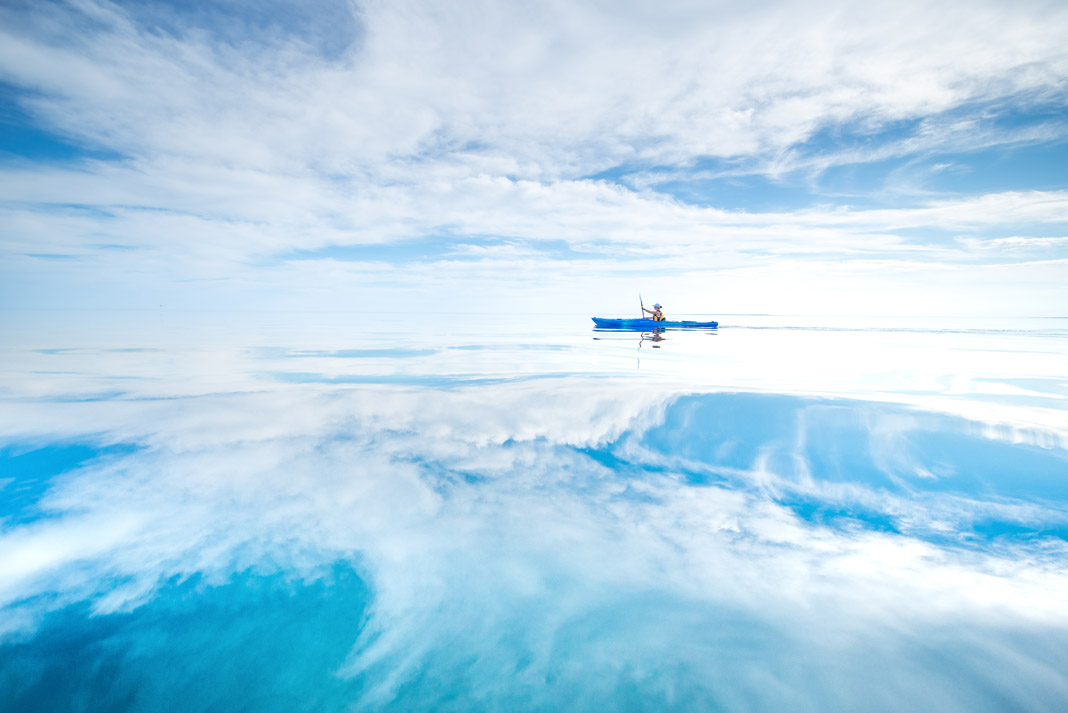
For the most part, I avoid traffic congestion, lineups and unpleasant human interactions. It’s just five minutes to the lake, the grocery store, and the kids’ school, which I do human-powered as much as possible. And the backyard oasis is coming along, complete with a roofed boat shed and plantings to screen us from the neighbors.
It’s such a comfortable life I sometimes wonder if I should just never leave, because every new wilderness trip brings with it the inevitable reckoning, storming my mood as soon as we re-enter the city’s orbit. My personal version of eating toilet paper is to get cranky and start chewing over the same old questions.
A paddler contends with post-vacation blues
How do I remain true to my values of wanting to be in the wilderness, and yet live in the city without breaking down? At what point should you actually just follow your bliss, quit your job, hightail it for the woods, and when should you just talk yourself into a state of equanimous acceptance of the status quo?
I spent a good part of my youth resenting my parents’ complacency in the face of what I considered the intolerable blandness of their lives, a failure to make the obvious improvements that to my mind would have been easy. Now here I am, an adult like them, learning to cultivate the level of stoic acceptance they modeled.
After each paddling trip, fraught conversations with my wife about the practicalities of work and family life gradually bring me down to reality. Okay, the ideal life might not happen right away. Moving might have to wait for retirement. Or like the hordes we crawl the highway with, we could acquire real estate when our city jobs provide us with the means to become the absentee landlords of some rustic piece of earth upon which to tend our dreams of eventual escape. In the meantime, I buy gear for the next trip. That often helps. Like my dog who eventually gives up eating the toilet paper and dozes off on the living room carpet, I concede although the city life is not ideal, there is no life that is.
I can make do.
This is the truth lying between dream and reality. Often going outside puts us in touch with what we most value. But we have to be careful not to idealize the experience to the point it destroys our relationship with everything that follows. After all, the wilderness experience doesn’t always start out well. Often it’s uncomfortable—rain! bugs!—and it’s only in facing the imperfect situation we’re drawn out of ourselves and into the present and a mindset of forward-looking acceptance, gratitude and appreciation.
How to stay in your happy place
The challenge is to carry this mindset forward on the journey home and into our everyday lives. When I come home looking back on the experience as something I want to hang on to, resenting the conditions of my life, I effectively unwind all the positive effects of going into the wilderness in the first place.
To think the circumstances of my life need to be a certain way to sustain the happiness I find in the wilderness is a gross misinterpretation of the experience. This impulse mixes up the conditions of mystical enlightenment—in my case, the rivers, the mountains, the sport—with its central lesson. As soon as you try to codify what you’ve experienced into some permanent way of being, your hope of achieving it is gone. As Stephen Mitchell writes in The Second Book of the Tao, “Every ism is a wasm.”
It’s all about your mindset, stupid.
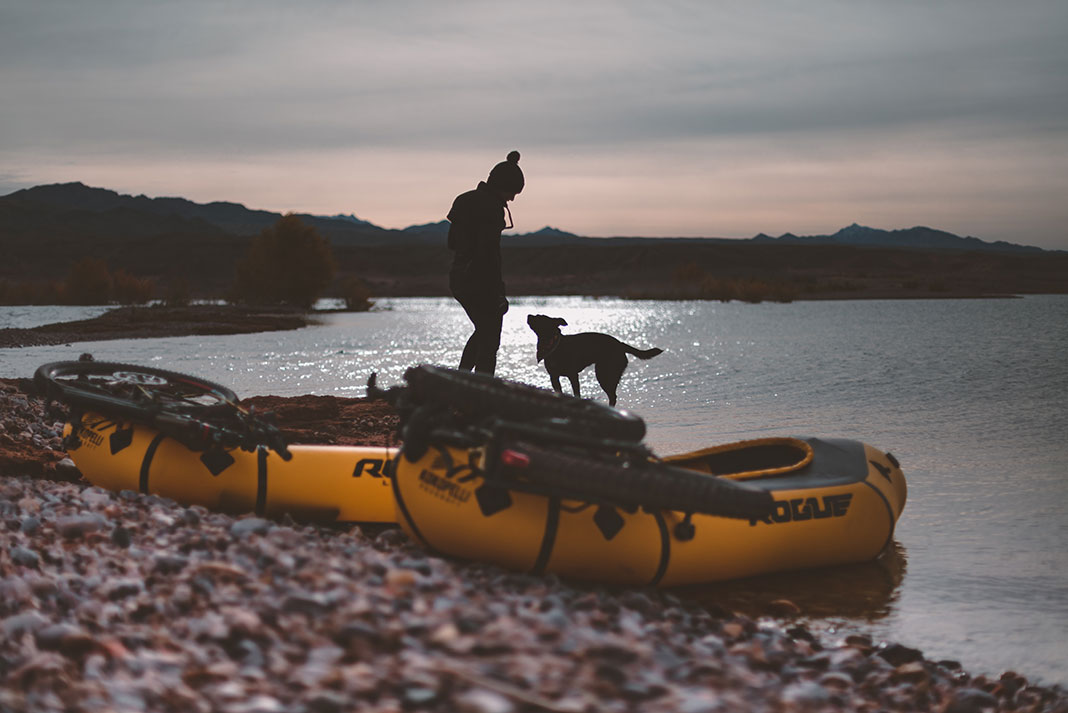
I’m not much brighter than my dog. His toilet paper eating is a canine version of my human angst, the chomping at the invisible chains of my daily existence I have to re-accept every time I return from the outdoors. For me to hold all this clearly in my own tumultuous consciousness when I hit the pestilent city traffic on the way home from a blissful outdoor experience is beyond the capabilities of my limited human mind.
I have to keep re-remembering this. Probably I’ve written it before and forgotten, and so now here I am writing it again. If you are like me, you’ll benefit from the repetition.
Breathe. Keep moving forward. Keep the faith.
As I would explain to my dog if he would listen, there will always be more adventures. Be grateful for the ones you’ve had, look forward to those to come.
Soon I will go paddling again. For now, I’m going out to buy more toilet paper.
This article was first published in Issue 55 of Paddling Magazine. Subscribe to Paddling Magazine’s print and digital editions, or browse the archives.
To beat post-vacation blues, carry the tripping mindset forward into your everyday life. | Photo: Patrick Hendry/Unsplash

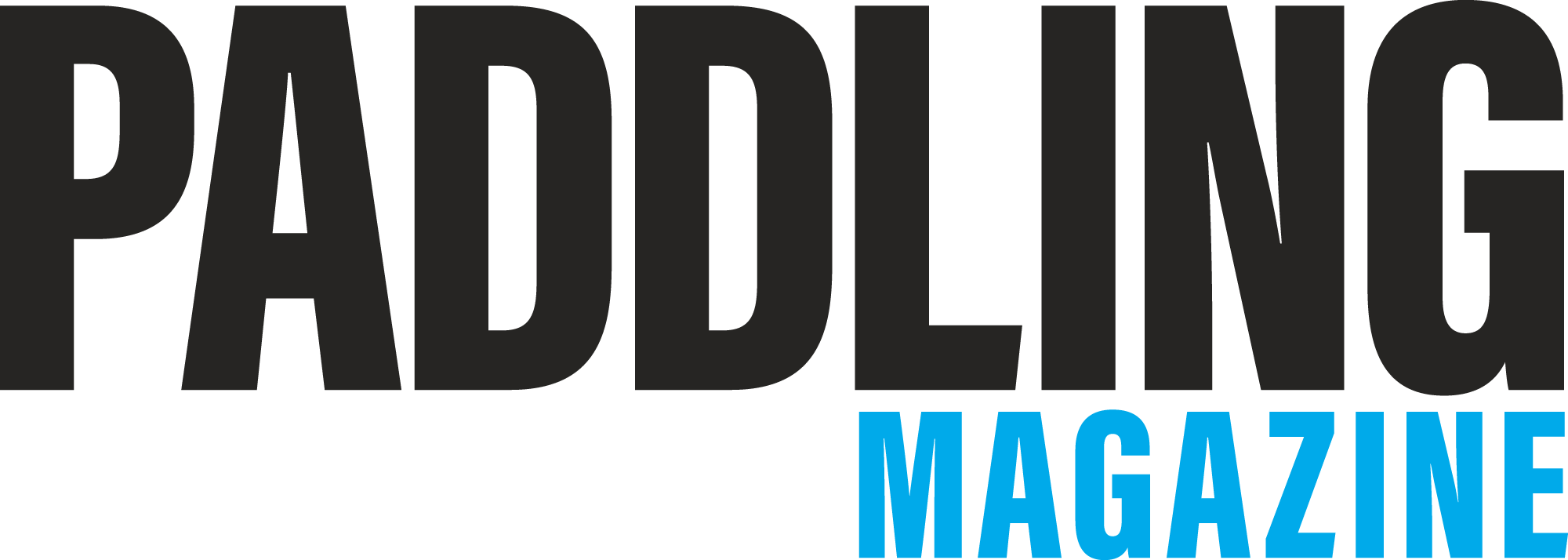

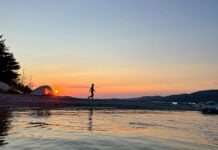
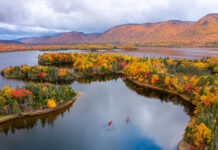

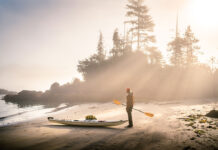


My husband and I tried moving to a small town so that we could live our lives on a continual canoe trip… turns out small town living is still living. You still have to work a job and pay rent. It’s not the same as camping, not nearly as blissful. Even though you are technically closer to the outdoors you still aren’t living outdoors. So we moved back to the city and just enjoy the trips we do take!
I can see and smell the ocean from both home and work. I have to pass over large bodies of water to get to and from work, and beach is only a short trip away. For all that, it might as well be 1000 miles away. I sail, paddle, and row, yet if I can get out once a week, that is a lot. Life keeps getting in the way of living.
I did quit – shuttered my business, moved to the edge of the water in a cabin over it accessible from a 210 step staircase down the side of the cliff. Ideal for remote work as a writer and an aspiring paddler. After 4 years it became less practical as coaching and trips meant longer drives and more trips up and down those steps.
So now I sit, a block from the water in city life, but in a home that is under 1000 sq ft for 3 of us. I can still smell the salty air at low tides. I see it from my living room and front deck. I can walk to the water in 5 minutes (SUP or kayak in tow) and launch. I still write/work remotely and coach to fill in the financial need. I paddle 3-4 times per week.
I am 15-20 years from any retirement, so it can be done.